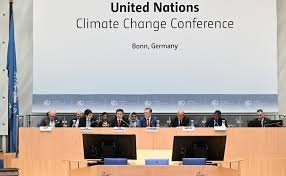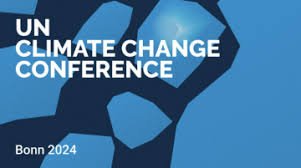Key Outcomes of the Bonn Climate Conference 2024
Overview of the Bonn Climate Conference 2024
The Bonn Climate Conference 2024, held in Bonn, Germany, concluded with limited progress on critical climate issues, setting the stage for a challenging road ahead to COP29 in Baku, Azerbaijan. The conference, officially known as the 60th session of the UNFCCC Subsidiary Bodies (SB60), aimed to address crucial aspects of the Paris Agreement but faced several hurdles.
Key Issues and Sticking Points
Central to the discussions were the guidelines for carbon markets under Articles 6.2 and 6.4 of the Paris Agreement, which remained unresolved from COP28. Another major focus was the New Collective Quantified Goal (NCQG) on climate finance for developing countries. Despite intense negotiations, disagreements persisted. Developing nations demanded more grant-based and concessional financing, while developed countries suggested expanding the contributor base to include some developing countries, citing new economic realities.
Challenges Highlighted During the Conference
The conference underscored several challenges:
- Geopolitical Tensions: The war in Ukraine diverted attention from climate action, particularly from major emitters like Russia.
- Mitigation vs. Adaptation: The emphasis on reducing greenhouse gas emissions overshadowed crucial adaptation issues for developing countries.
- Limited Progress on Key Issues: Essential discussions on the Global Stocktake and the Warsaw International Mechanism for Loss and Damage saw minimal advancement.
- Climate Finance Pledges: Developed nations continue to fall short on their $100 billion annual commitment to support climate action in developing countries.
India’s Position and Future Directions
India advocated for a balanced approach that addresses both mitigation and adaptation needs. Emphasis was placed on the importance of technology transfer and financial support from developed countries. India also highlighted the role of civil society and public pressure in holding governments accountable for their climate commitments.
Looking Ahead to COP29
COP29, scheduled for November 11-22, 2024, in Baku, Azerbaijan, will build on the discussions from COP28. Key agenda items include achieving net-zero emissions by 2050, transitioning away from fossil fuels, securing consensus on limiting global warming to 1.5°C, and addressing the unfulfilled $100 billion annual climate finance commitment.

Why This News is Important
Impact on Global Climate Policy
The outcomes of the Bonn Climate Conference are crucial as they influence the global climate policy direction leading up to COP29. The progress made, or lack thereof, sets the tone for future negotiations and international climate commitments.
Relevance to Developing Countries
Developing countries are significantly impacted by the decisions made at these conferences. The call for increased climate finance and equitable contributions is vital for their sustainable development and climate resilience. The unresolved issues directly affect their ability to meet climate goals.
Influence on Climate Adaptation Strategies
The conference highlighted the ongoing struggle between prioritizing mitigation over adaptation. This is particularly important for developing nations that need to adapt to the adverse effects of climate change while also reducing emissions.
Geopolitical Dynamics
The geopolitical tensions, such as the war in Ukraine, influence the urgency and focus of climate actions. Understanding these dynamics is essential for students preparing for government exams as it provides insights into the broader context of international relations and climate policy.
Role of Civil Society and Public Pressure
The conference emphasized the importance of civil society and public pressure in driving climate action. This is a critical takeaway for students as it underscores the role of public engagement and advocacy in shaping climate policies.
Historical Context
Background of the UNFCCC and COP
The United Nations Framework Convention on Climate Change (UNFCCC) was established in 1992 to address global climate change. The Conference of the Parties (COP) is the supreme decision-making body of the UNFCCC, with COP29 being the 29th such meeting. Previous COPs have tackled various climate issues, from establishing the Kyoto Protocol to the landmark Paris Agreement in 2015.
Evolution of Climate Finance
Climate finance has been a contentious issue since the inception of the UNFCCC. The 2009 Copenhagen Accord saw developed countries pledge $100 billion annually by 2020 to support developing countries in their climate actions. However, this target has not been fully met, leading to ongoing negotiations and demands for increased financial commitments.
Historical Geopolitical Influences
Geopolitical factors have historically influenced climate negotiations. For instance, the 2001 US withdrawal from the Kyoto Protocol and the 2017 withdrawal from the Paris Agreement under the Trump administration impacted global climate efforts. Current geopolitical tensions, such as the Ukraine war, continue to shape the climate discourse.
Key Takeaways from the Bonn Climate Conference 2024
| Serial No. | Key Takeaway |
|---|---|
| 1 | Limited progress on carbon market guidelines (Articles 6.2 and 6.4 of the Paris Agreement) |
| 2 | Ongoing disagreements over the New Collective Quantified Goal (NCQG) on climate finance |
| 3 | Geopolitical tensions, particularly the Ukraine war, hinder urgent climate actions |
| 4 | Developing nations’ demand for increased grant-based and concessional financing |
| 5 | The need for a balanced approach addressing both mitigation and adaptation |
Important FAQs for Students from this News
1. What was the main focus of the Bonn Climate Conference 2024?
The main focus was on finalizing guidelines for carbon markets under Articles 6.2 and 6.4 of the Paris Agreement and negotiating the New Collective Quantified Goal (NCQG) on climate finance for developing countries.
2. Why is the New Collective Quantified Goal (NCQG) significant?
The NCQG is significant because it aims to set new financial targets to help developing countries mitigate and adapt to climate change, addressing both grant-based and concessional financing.
3. How did geopolitical tensions impact the conference?
Geopolitical tensions, such as the war in Ukraine, diverted attention and resources from climate actions, impacting the urgency and focus of negotiations, especially from major emitters.
4. What role did India play in the conference?
India advocated for a balanced approach to address both mitigation and adaptation needs, emphasizing technology transfer and financial support from developed countries.
5. What are the expectations for COP29 in Baku, Azerbaijan?
COP29 aims to build on the outcomes of COP28, with a focus on achieving net-zero emissions by 2050, transitioning away from fossil fuels, limiting global warming to 1.5°C, and fulfilling the $100 billion annual climate finance commitment.
Some Important Current Affairs Links

















